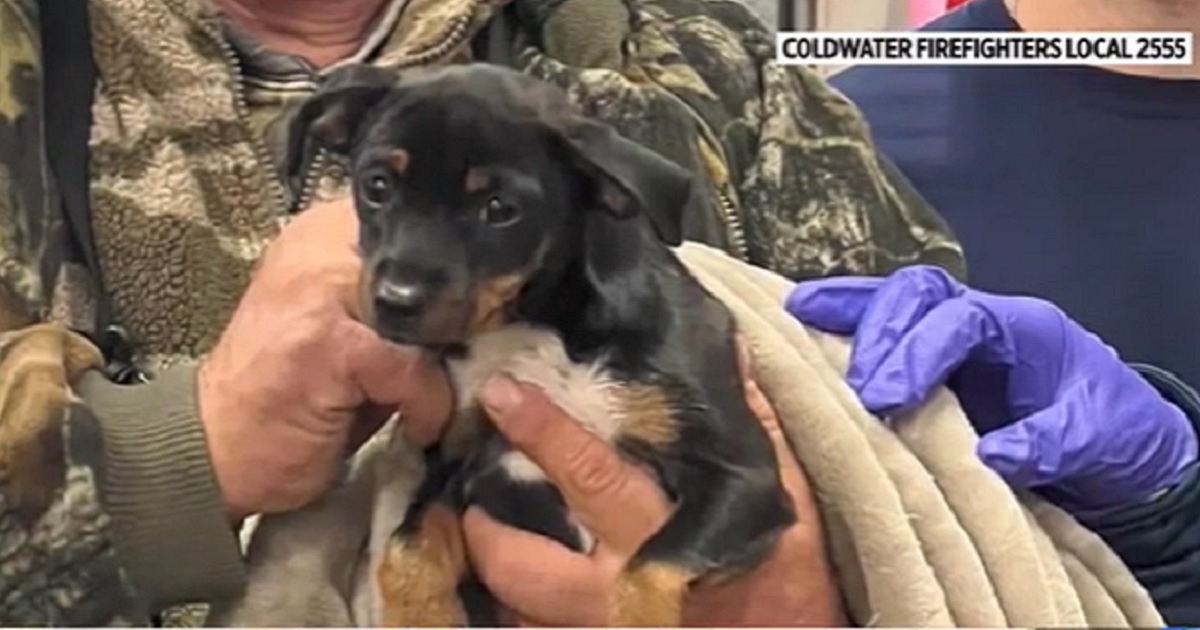A puppy was saved by Michigan firefighters last weekend after the young dog found a “fentanyl patch” and overdosed.
According to WWMT-TV in Kalamazoo, the female puppy, named Whip, was brought to the Coldwater Fire Department after the owner found the animal overdosing.
Coldwater Fire Chief Dave Schmaltz told the station Whip likely got into the garbage and chewed on the owner’s prescription fentanyl patch.
[firefly_embed]
[/firefly_embed]
“This gentleman lives way out in the country. Dispatch center told him to bring the dog up here to the fire station,” Schmaltz said, according to WOOD-TV. “We run on unique calls all the time. This one was just one of those out-of-the-ordinary [calls], more than the usual.”
The fire chief told WWMT that Whip was “drooling, kind of out of it and shaking” – which, he noted, are the typical “overdose signs you would see in an individual.”
Schmaltz said that the puppy was given two doses of Naloxone – a drug, also known as Narcan, that’s typically meant for humans and functions to quickly reverse an opioid overdose.
Despite his own doubts on Whip’s chances of survival, Schmaltz said that the puppy is now doing fine.
“After that the puppy was bounding around like nothing happened,” Schmaltz said, according to the Post.
In a Facebook post, the department clarified that the dog’s owners are not drug addicts and the fentanyl was prescribed for chronic pain.
According to the Food and Drug Administration, a fentanyl patch “treats opioid-tolerant patients who need daily, round-the-clock, long-term pain medicine by releasing fentanyl through the skin.”
The FDA warns that these patches can be extremely dangerous for children and can cause an accidental overdose.
“Even after a patch is used, there is enough fentanyl left to cause illness, overdose, or death in babies, children, adults, and pets who are accidentally exposed to the medicine in the patch,” the FDA warns.
“The FDA recommends promptly disposing of used patches by folding them in half with the sticky sides together, and then flushing them down a toilet. They should not be placed in the household trash, where children or pets can find them.”
Schmaltz reminded the public of the dangers of not disposing of the patches properly, saying: “Even after the three days of using it, they still have medication left, up to 50 percent.”
The fire department added in a Nov. 19 Facebook post that Whip “will be monitored until her follow-up with her veterinarian.”
As WOOD-TV reported, Schmaltz praised the local firefighters for going “above and beyond what their normal training is,” adding that “They thought outside the box and we had a successful outcome.”
This article appeared originally on The Western Journal.

























 Continue with Google
Continue with Google